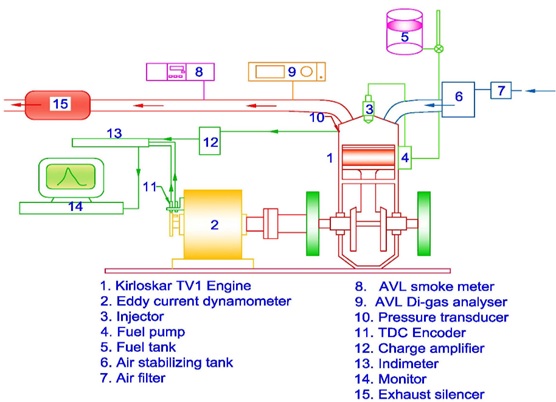
The hunt for alternative fuels that may be utilized in place of conventional fuels is intensifying quickly since the availability of fossil fuels is dwindling daily. In this work, biodiesel derived from pumpkin and cotton seed oils is presented for use as diesel engine fuel. Related to diesel, the calorific value of this precise biodiesel is low. In a 4-stroke diesel engine, four mixes (B0, B25, B50, B75 and B100) of biodiesel were evaluated. The engine's emissions and combustion results were contrasted with the diesels. When all blended fuels are related to diesel fuel, the test repercussions illustrate a small increase in the thermal efficiency of the brakes and a decrease in the consumption of fuel specifically for the brake. Emissions of Carbon monoxide and the usage of biodiesel subsequent in a reduction in hydrocarbon emissions and an upsurge in carbon dioxide and nitrogen oxide emissions. The experiment's results showed that biodiesel, which is derived from these seed oils, maybe a useful diesel replacement for compression ignition engines.
Total file downloads: 28